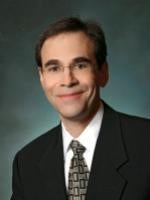Should a treating physician who is subpoenaed to testify about a patient’s diagnosis, treatment and prognosis at a deposition or trial in a civil lawsuit be compensated for his or her time testifying, or should they be paid the nominal statutory witness just like any other fact witness?
Courts across the country have been evenly divided on this issue. Some courts have held that treating physicians should be considered fact witnesses when testifying about their sensory observations and information acquired independent of the litigation, and therefore not be compensated for their time. Other courts have held that the treating physician’s specialized training and knowledge necessarily justifies a reasonable fee for all testimony.
Up until recently, Arizona civil law was unsettled on this issue.
In a 2011 criminal case, the Arizona Court of Appeals held that treating physicians were not entitled to expert witness compensation for their testimony regarding a patient’s diagnosis and injuries. State ex rel. Montgomery v. Whitten, 228 Ariz. 17, 262 P.3d 238 (App. 2011).
And very recently, the Arizona Court of Appeals extended this reasoning to civil cases, holding that a treating physician need not be compensated as an expert in a civil lawsuit if he or she testifies only to the injury, medical treatment or other first-hand knowledge obtained independent of the litigation. Sanchez v. Gama, --- P.3d ---- (Ariz. App. Aug. 20, 2013) (as amended Sept. 4, 2013).
State ex rel. Montgomery v. Whitten
The Arizona Court of Appeals first addressed the issue of treating physicians’ entitlement to expert witness compensation in a criminal case: State ex rel. Montgomery v. Whitten, 228 Ariz. 17, 262 P.3d 238 (App. 2011). In Whitten, the court considered whether physicians who had treated a child admitted to the hospital for fatal injuries were entitled to compensation as experts if called as trial witnesses in a later murder case. When the State sought to call six physicians who had treated an infant with massive brain injuries and skull fractures, the physicians demanded to be paid as experts for their testimony. The trial court ordered the State to compensate the physicians as experts, and the State sought interlocutory review (called a special action in Arizona) for relief from this ruling. The Court of Appeals accepted jurisdiction and rejected the “overly broad” position that treating physicians must be compensated as experts “when any part of their testimony requires specialized knowledge obtained through professional education or work experience.” While noting that it was not possible to create a bright-line rule for determining when a treating physician crossed over from fact witness to expert witness, the court articulated guidelines for trial courts to make this determination. Typical areas of fact witness testimony include: (1) diagnoses and reasons for diagnoses; (2) the “who, what, when, where and why” regarding patient encounters and medical records; and (3) sensory information regarding what the physician observed. Conversely, the following areas are generally the subject of expert witness testimony: (1) consideration of records of another healthcare provider; (2) opinions on the standard of care; (3) discussion of medical research or literature; (4) hypothetical questions; and (5) issues of causation, unless the physician drew such conclusions treating the plaintiff.
The Whitten court stated its decision should not be read to affect disclosure obligations or compensation issues in civil cases. Thus whether these guidelines would apply to treating physicians in civil litigation remained an open issue. In Sanchez v. Gama, the Arizona Court of Appeals answered this question.
Sanchez v. Gama
Sanchez was a personal injury case arising out of a car accident. The injured plaintiff identified her chiropractor as both a fact witness to testify about the medical records and as an expert witness to testify regarding her injuries and anticipated medical treatment. The defendant subpoenaed the treating chiropractor for a deposition, but did not agree to provide compensation for his time in the deposition. The chiropractor retained counsel and moved to quash the subpoena. Alternatively, the chiropractor requested a protective order limiting the defense counsel’s inquiries to specific issues and requiring him to pay expert fees in advance. The trial court granted the motion and found that the treating chiropractor was an expert under the Arizona Rules of Civil Procedure. Following the deposition, the chiropractor sought to recover expert fees from the defendant for his time. An arbitrator considered the fee dispute and ruled that the chiropractor was entitled to $300 an hour for his testimony.
The defendant sought special action relief from these rulings. The Court of Appeals accepted jurisdiction to consider the narrow question of “whether a treating physician’s testimony concerning the patient’s diagnosis, treatment and prognosis is ‘expert testimony’ within the meaning of our rules simply because it necessarily draws upon his or her skill, training, and experience as a doctor.”
After noting the split in authority on this issue, the Sanchez court was more persuaded by courts finding that treating physicians are not considered experts when they testify about observations and opinions based on treating the plaintiff. The court rejected contrary authority because it found no logical explanation as to why physicians differed from other classes of professionals with “specialized knowledge,” to warrant compensation for all physician testimony. As a matter of public policy, the court found it was not appropriate to carve out a physician exception to the general rule that fact witnesses are not paid for their testimony, observing that “[c]ourts should not create a special class of fact witnesses who are entitled to expert witness fees while excluding others.”
The court held that the test for whether a treating physician is a fact or expert witness “is not the label given by the disclosing attorney, but the substance of the disclosure under Arizona Rule of Civil Procedure 26.1.” Whether a treating physician is a fact or expert witness depends on the content of the physician’s testimony. According to the court, “When a treating doctor is testifying only to the injury, medical treatment, and other first-hand knowledge not obtained for purposes of litigation, the treating doctor is a fact witness and need not be compensated as an expert.” On the other hand, “where expert testimony is solicited, whether the source of the expert’s underlying information is from personal observation or the observations of others, but the testimony is developed for purposes of litigation, the doctors must be compensated accordingly.”
The Sanchez court noted that this necessarily is a fact-specific determination depending on the questions asked of the physician, and that trial courts will be required to determine when expert testimony is being solicited, so as to require reasonable compensation. Turning to the case before it, the Sanchez court found the treating chiropractor’s testimony was almost entirely factual, based on his personal observations, and thus he was not entitled to expert witness compensation.
The Practical Effect of Sanchez
The Sanchez decision has already caused reverberations. In response to Sanchez, the Arizona Trial Lawyers’ Association filed a rule change petition, seeking expedited relief and requesting that the Arizona Supreme Court modify Arizona Rule of Civil Procedure 26(b)(4)(C) to provide that treating medical providers are entitled to reasonable compensation for their testimony. The Arizona Supreme Court denied ATLA’s request for expedited consideration and opened the rule change petition for public comments.
In the meantime, Sanchez is Arizona law on the issue. It will prevent treating physicians from charging expert witness fees (sometimes quite exorbitant) for deposition or trial testimony relating to the injury, medical treatment, and other first-hand knowledge not obtained for purposes of litigation. But where the physician’s testimony goes beyond this, he or she may be entitled to compensation. This is easier to state than it will be to apply. There may be situations where a treating physician’s testimony will touch on subjects that are both fact witness and expert witness testimony, and thus, the physician may be entitled to compensation for part of his or her time.
The Sanchez decision does not address the rates that physicians may charge for the portion of their testimony that is considered expert or opinion testimony.
To read more about Sanchez v. Gama, please click here.
To read more about State ex rel. Montgomery v. Whitten, please click here.






 i
i

